
Current Legislation in the Food Sector
To ensure a high level of human health protection, the European Union has made food traceability mandatory since January 1, 2006, by applying Regulation (EC) 178/2002 on the general principles and requirements of food law, and specifically Regulation (EC) 852/2004 on the hygiene of foodstuffs. The latter regulation establishes the general safety principles that all food sector operators must comply with at every stage of the production chain.
This allows the legislator to conduct inspections and verify that all processes related to production, packaging, and distribution meet the hygiene and food safety requirements established by law.
Article 5 of Regulation (EC) 852/2004 also introduced the HACCP (Hazard Analysis Critical Control Point) certification as the main procedure for self-monitoring and hazard analysis in hygiene and safety matters. With the aim of preventing, eliminating, or reducing threats that can compromise food safety, food producers or packers are obliged to ensure an adequate level of hygiene in all their production processes.
For this reason, inspection and end-of-line control machines that come into contact with food products must be easily and thoroughly sanitizable. They must have a level of protection suitable for the type of washing they undergo, whether frequent or infrequent, with various cleaning aids and at different temperatures.
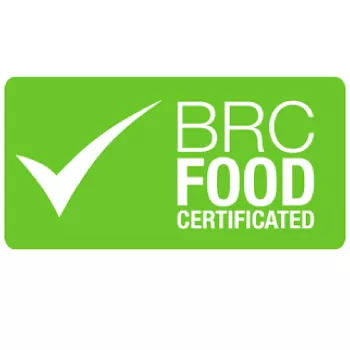
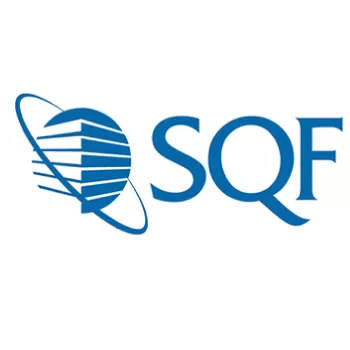
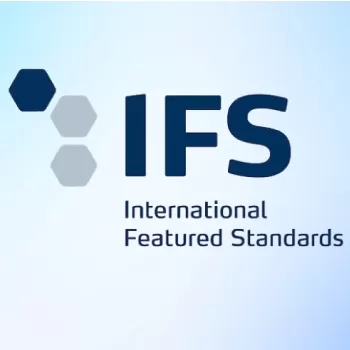
HACCP standards can then be implemented by various member states through different specific regulations, such as the Global Standard for Food Safety of the British Retail Consortium (BRC) in the United Kingdom.
Aligned with HACCP standards is the SQF (Safety Quality Food) Program, a food safety and quality certification system whose certification ensures consumers and buyers of compliance with food safety regulations throughout the entire production chain at an international level.
Another globally recognized certification is the IFS (International Featured Standards), which establishes development programs and minimum food quality standards to increase the safety of products placed on the market and the reliability of the brands that produce them.
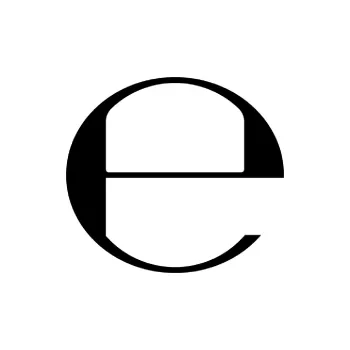


Prepackaged food
For prepackaged foods, the European Directive 1976/211/EEC, adopted in Italy by Law No. 690 of October 25, 1978, ensures compliance with the net weight indicated on the package.
Law 690 obliges the producer of prepackaged products with a weight greater than or equal to 5 g and less than or equal to 10 kg to comply with the net weight indicated on the package within certain tolerance values set by the regulations.
The declared net weight must be marked on the package with the ℮ symbol and must be checked and certified by a legal measuring instrument, such as a legalized MID checkweigher.
Since 2014, food sector operators in Italy are also required to comply with Regulation (EU) 1169/2011 on food labeling.
The primary objective of this regulation is to protect consumers by ensuring maximum transparency regarding the purchase of products and the information, especially the nutritional value, provided about them.
Nemesis solutions
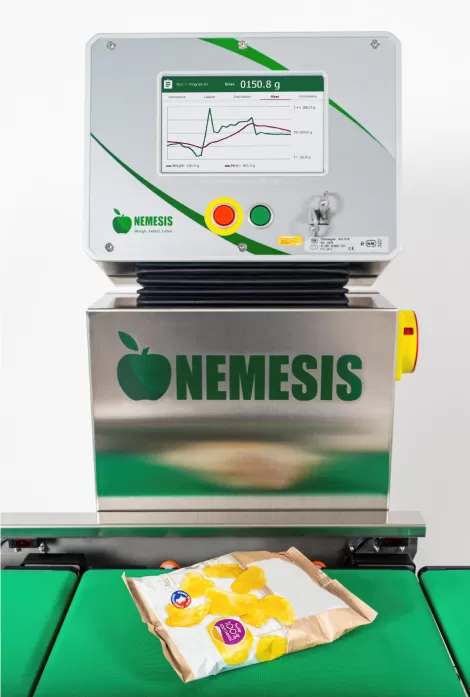
Food checkweighers
To comply with food traceability regulations, Nemesis offers its food checkweighers, either standalone or combined with labelers or metal detectors.
The checkweigher automatically detects and records batch data - average weight, number of rejected products if out-of-tolerance for weight, standard deviation, productivity, and process speed - without interrupting the production cycle.
Therefore, in the event of recalls or complaints about the product, the data collected by the checkweigher software allows the immediate identification and isolation of the production batch.
For packaged products, the food checkweigher verifies the declared net weight with an accuracy level up to 0.2 g, MID-certified, thereby ensuring full compliance with Law 690.
Combined checkweighers with food metal detector
Integration with a food metal detector enables the detection and rejection of any ferrous and non-ferrous foreign objects in the product during the packaging phase, preventing complaints about product quality at the source and protecting the brand's and company's image.
The sensitivity of our metal detectors is such that they can detect contaminant particles in food as small as a few millimeters in diameter.
This increases the safety level of the food product being placed on the market and protects the consumer.
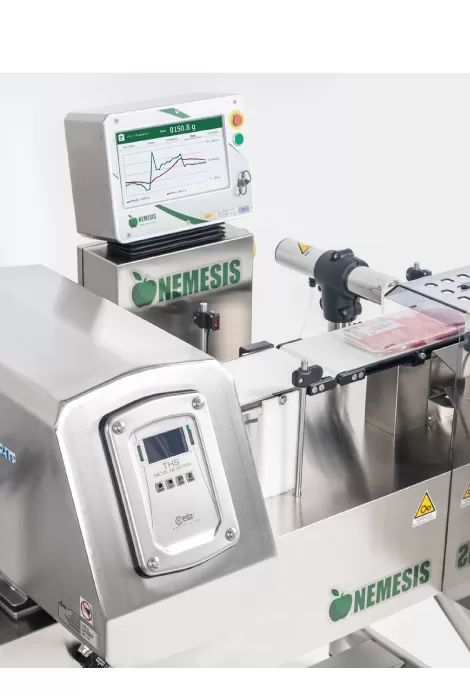
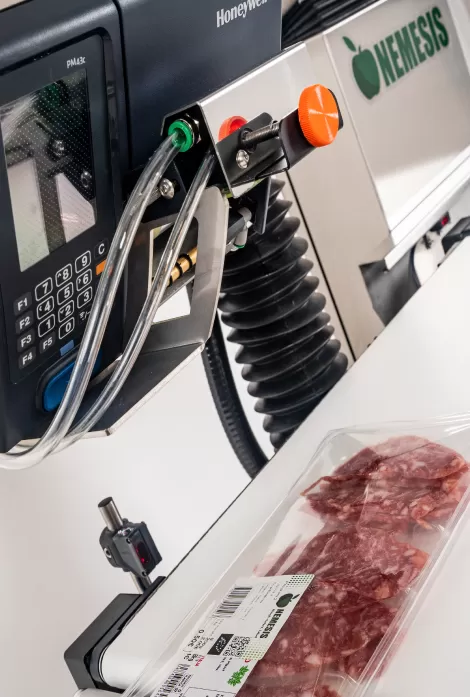
Weigh price labelers
Adding a labeler allows real-time printing and application of a label with product weight, expiration date, price, and any relevant information about the producer that needs to be communicated to the consumer.
This enables the tracking of the food's history and origins, ensuring quality and safety compliance with regulations on guaranteed net weight prepackaging and product labeling.

To meet the highest hygiene requirements specified by HACCP regulations, Nemesis food checkweighers and combined systems feature a hygienic design that prevents dirt and dust accumulation.
It also allows easy cleaning, even with high-pressure water jets and high temperatures. The appropriate IP (International Protection) rating, which identifies the degrees of protection for electrical and electronic devices, can be requested.
For the Nemesis range, the rating can go up to IP69K, the highest possible protection level, where the load cells of the checkweighers can withstand continuous high-pressure water jet cleaning for several minutes.